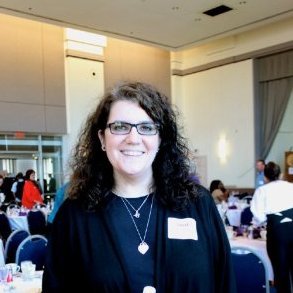
An Interview with Catherine Strode
Merrill Friedman leads the national Disability Policy Engagement team and advocacy strategy for Anthem and its affiliate health plans. She works with advocates to meet the needs of individuals with disabilities in the company’s managed health care plans.
In an interview with Catherine Strode, she explains how the health care industry is embracing a Community First philosophy in delivering its Medicaid managed program services.
What changes are you seeing in the Medicaid system?
“The Medicaid contracts and Medicaid designs are changing. The expectations are changing. As we redesign Medicaid programs, it’s coming with the reliance on community inclusion. That’s a lot of what’s driving the expectations that CMS (Centers for Medicare and Medicaid Services) is enforcing through regulations and in their Requests for Proposals. They are talking to managed care organizations, advocates, think tanks, and researchers. What is built into a Medicaid program now is more of the philosophy of Community First and Employment First outcomes for people with disabilities built in there. There are provider collaboration expectations for private/public partnerships, for including Centers for Independent Living and community disability organizations.”
 How is the industry working to include community services through Medicaid?
How is the industry working to include community services through Medicaid?
“Community based organizations are critical components of the services and supports we build access to. Community is where life happens for people. People with disabilities are going to need supports to live there. Those supports should be delivered in the community where people have their friends, their social capital, and have access to employment. Anthem is trying to build community capacity through provider relationships. There are community based organizations where people are used to getting their services. The industry is supporting community-based organizations through technical assistance and through creating collaborations to build capacity, so they can do more for people to live in their homes and communities. It is prioritizing people and community first, person-centeredness, self-determination. It is embedding the social determinants (friends, jobs, housing, and transportation) as core elements of the service planning process.”
What kind of a change does this reflect in managed care philosophy?
“There are leaders in our advocacy community that have driven home for health care companies what it means to be person-centered and not to medicalize people’s lives. Working from a sick care philosophy to support people, versus, a social model of supporting people in their communities. It (the philosophy) is pushing it out to the community because that’s where people are going to be most engaged. They have healthier outcomes. People aren’t necessarily “sick” all the time and don’t want the services and supports they receive in the community to be medicalized by health care. We should have built in networks and address the work force issues in terms of the number of people in direct support and personal assistance roles. We have to support people in those jobs so individuals with disabilities can pick and choose the people who are supporting them. People who are experienced in supporting people with disabilities and understand the value the overall service plan has on an individual’s quality of life and wellbeing.”
What is a case example of this kind of managed care plan?
“You are enrolled in a Medicaid managed program and meet with your service coordinator. They learn about you and map out a service plan. Care plans include transitions, supports. If you want to work, we have an employment specialist to help you navigate a job search. We could link transportation to that. If you are in a nursing home (because that was the only place they could find for you), we would plan your transition to the community. We would help you find a place to live. I know one person who was going to be moved to congregate day setting because of changes with aging caregivers. We were able to purchase the Personal Emergency Response System and loop in friends he had built over time, natural supports. We were able to link those together so he would have people available to him during the day and avoided the congregate day living.”
How is the concept of independent living evolving?
“I think the term has to change. If you google ‘independent living,’ assisted living facilities pop up. I think the onus is on us to look at the principles of self-determination and independent living and redefine that on the things that are important to people. A lot of people are still working with that term ‘special.’ As in, ‘People with intellectual and developmental disabilities have special needs and ‘need special things.’ They are trying to access all the same things in the community everyone else accesses. People’s individual successes are because of the support they have access to. Taking away supports doesn’t save money. It creates dependency for people. I think it’s about continuing to change the paradigm.”
 Catherine Strode is Advocacy Denver’s Communications and Policy Specialist. She holds a Masters degree in Public Administration with an emphasis in Health Care Policy. Catherine publishes Policy Perspective, featuring interviews with state policy makers on issues that affect the work and mission of Advocacy Denver.
Catherine Strode is Advocacy Denver’s Communications and Policy Specialist. She holds a Masters degree in Public Administration with an emphasis in Health Care Policy. Catherine publishes Policy Perspective, featuring interviews with state policy makers on issues that affect the work and mission of Advocacy Denver.
